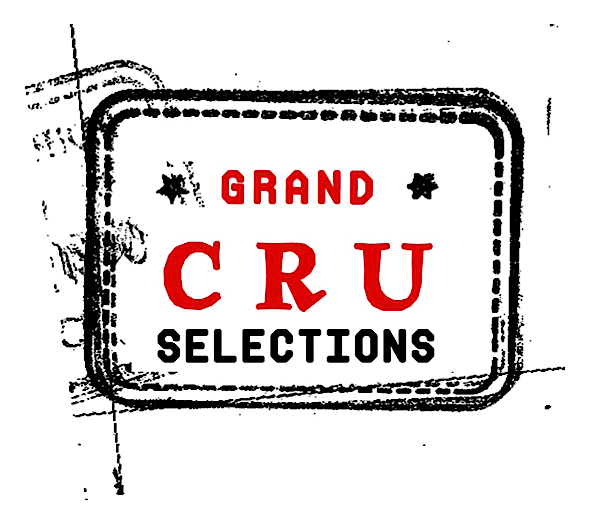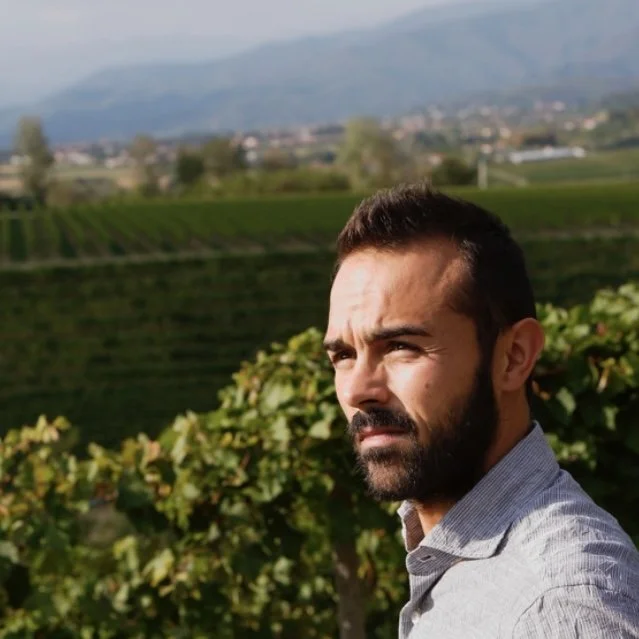Via Alpina
Colli Orientali, Friuli, Italy
Giampaolo Venica
Via Alpina is the brainchild of Giampaolo Venica, a project that stands parallel (although separate) to his deeply personal venture, Dalia Maris. Via Alpina was born with the intention to produce wines from Friuli valorizing the freshest areas in Colli Orientali, which not only possess a true expression of the character of the climate but also a great value! These are everyday wines made with fruit sourced from growers who farm responsibly and organically, in line with Giampaolo’s ideas and standards and most importantly, that maintain a sense of place. The ‘Alpine Way’ (Alpine Road) is symbolic of driving through Friuli heading north into the mountains. All wines are varietal-specific and native to Friuli: Pinot Grigio, Sauvignon Blanc, plus Ribolla Gialla which debuted with the 2024 vintage, and shows another character of Friuli. Without losing a sense of place, the Via Alpina lineup can offer a more "approachable” wine for everyday, immediate drinking.
“Today, many wines are “made” by pursuing acidity and low alcohol at any cost. However, this often results in wines that, especially in warm vintages, reveal only the early-picked, greenest malic acid. Via Alpina was created to produce wines from Friuli that highlight the freshest regions in Colli Orientali, showcasing a true reflection of the local climate and terroir. The term ‘Alpine Way (Road)’ embodies the concept of traveling through Friuli towards the mountains. These wines are crafted in the vineyards, and I ensure high quality by sourcing grapes solely from responsible, organic growers who align with my values and standards.”
- Giampaolo Venica
-
Nestled in Italy’s far northeast, the Colli Orientali del Friuli is defined by rolling hills full of “ronche,” or tiny mountain tops where vineyards are often terraced to combat erosion. The soils here—ancient layers of marl and sandstone known locally as ponca—give wines their hallmark minerality and structure. Warm days paired with crisp nights preserve acidity and aromatic intensity, producing whites of remarkable precision. This unique interplay of climate and soil makes the Colli Orientali one of Italy’s most distinctive and expressive wine regions.
-
The concept of the mountains is important because the flow of colder, heavier air that descends from the south every night pushes warmer air away, decreasing the temperature in the vineyards (northerly vineyards = coolest, southerly vineyards = warmer). Timing of picking is similar amongst all of the varieties, but vinification is made without destemming or maceration, just whole cluster fermentation and aging in stainless steel. The vineyard sites offer individual expressions, showing power and great texture balanced with elegance.
Wines
Pinot Grigio
Sourced exclusively from hillside sites in Collio and Colli Orientali, where vines range from 12 to 25 years old. Grapes are destemmed without maceration, gently pressed, and aged eight months in stainless steel on the lees with occasional bâtonnage. The focus is on purity and precision, distinguishing it clearly from mass-market Veneto Pinot Grigio.
Sauvignon Blanc
Coming from two organically farmed vineyards in Rosazzo and Prepotto (Friuli Colli Orientali), with southeast and east-southeast exposures that Giampaolo Venica favors for their precision and leaner style. Vines are 15 to 20 years old, the result of massal selections for added complexity. Grapes are destemmed, lightly pressed without maceration, and aged eight months in stainless steel on the lees with bâtonnage.
Sauvignon Blanc “Giulietta”
Named after the Giulian Alps and this wine highlights cooler vineyard sites influenced by nightly mountain airflows. Grapes are harvested around the same time as the classic Sauvignon, but here the vinification is different: whole-cluster pressed, with no destemming or maceration. Fermentation and aging take place in stainless steel, producing a more powerful yet elegant expression.
Ribolla Gialla
Coming from organically farmed vineyards and is handled delicately to preserve the character of the grape. Known for its large clusters, subtle aromatics, and firm tannins, Ribolla is whole-cluster pressed without maceration, then fermented and aged for seven months in stainless steel on the lees with bâtonnage as needed.

